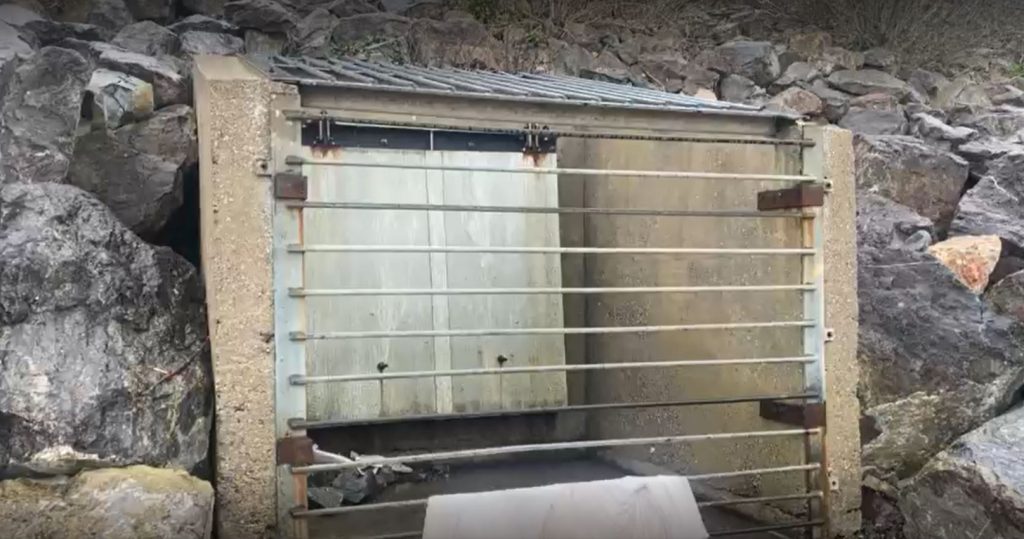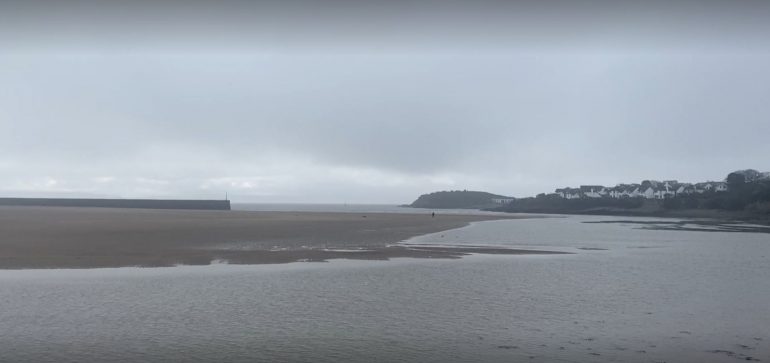Environmental groups are calling on the Welsh Government to support a campaign to stop raw sewage flowing onto the beaches and into the seas of Barry.
A petition calling for a stop to the process has cross-party polictical support as well as the backing of environmental and community groups.
The petition states: “The Welsh public are increasingly becoming aware of this appalling pollution and want action to resolve this issue.”
Old Harbour and Watchtower Bays are used by cold-swimmers, paddle boarders and kayakers. It’s also home to many species of wildlife.
They are also home to two combined sewer outflows, which pump untreated waste out into the water when there’s been heavy rain or storms.
Campaigners believe the pipes are being used more frequently because of climate change and new-builds putting extra demand on old plumbing systems. They now want the water to be regularly tested.
“We’re seeing increased levels of rainfall now with climate change and recently in Barry we’ve got a housing crisis,” said Barry’s Green Party candidate Aoife Blight.
“As a result, there’s been plenty of houses built, but the old infrastructure doesn’t necessarily meet the demand of those new properties.
“It has to go somewhere, which means the overflow pipes are being used more regularly.”
The campaign group – which includes people from Barry swimming clubs, nature groups and political parties – want the water to be regularly tested for pollution levels. This would inform the public whether there is a danger to health.

Why is raw sewage going into the water?
Combined sewer outflows are used when there’s been heavy rain and sewage capacity has reached its limit.
Untreated sewage, including human waste, wet wipes and sanitary products, can legally be flooded into open water.
The last available data by Welsh Water shows these sewer storm overflows discharged 65 times in 2020 – a combined total of 73 hours of pumping, or three days’ worth.
Natural Resource Wales tests the water quality anually but Welsh Water are responsible for the pipes.
Other swimming sites nearby, such as Jackson’s Bay, has its water tested but campaigners are calling for Old Harbour and Watchtower Bays to be added to the list.
Is raw sewage a public health concern?
According to Surfers Against Sewage, a campaign group tackling pollution in waters, raw sewage can cause stomach upsets, eye, skin and ear infections. In very serious cases it can cause hepatitis.
Jane, who is a regular at Barry’s Blue Tits Chilled Swimmers club, said she’s been to her GP after being in the water.
“I’ve been back and forth to the doctors a couple of times for an unexplained skin condition on my face”, Jane said. “I did suggest to the doctor ‘could it be the water?’ because it’s quite foul-smelling sometimes and he said it could be.”
When will the problem be fixed?
Natural Resource Wales say it does not test at Old Harbour and Watchtower Bay because it is not categorised as bathing water by the Welsh Government.
Despite the water being used by the public regularly, this means no testing can take place until the waters receive bathing status.
Fiona Abbott, Operations Manager for Natural Resources Wales, said: “Keeping Wales’ bathing waters clean and safe for people and wildlife is a huge part of the work we do. We work with the Vale of Glamorgan Council to monitor bathing water quality around Barry.
“The classification of bathing water quality is determined by using sample results over the last four years. In Barry, Cold Knapp, Whitmore Bay and Jackson’s Bay are designated as bathing waters and the water quality at these beaches is classified as ‘Excellent’, ‘Good’ and ‘Sufficient’ respectively.
“However, Barry Old Harbour or Watchhouse Bay is not a designated bathing water and is not monitored by Natural Resources Wales.”
Welsh Water said: “With regards to the CSOs [combined sewer outflows] in Barry, we can confirm that these are operating within their permits and during heavy storm events and are closely monitored by NRW [Natural Resource Wales].”

